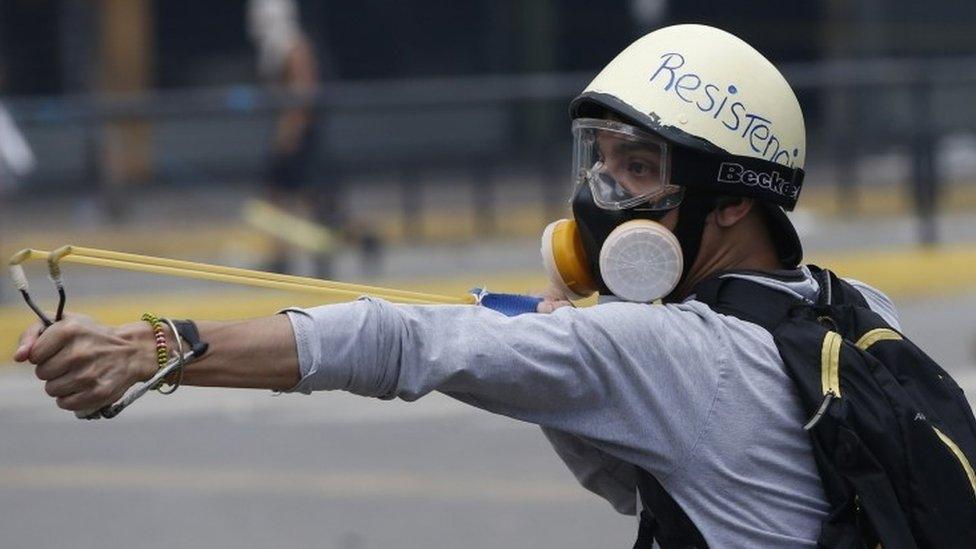What has Venezuela's constituent assembly achieved?
- Published
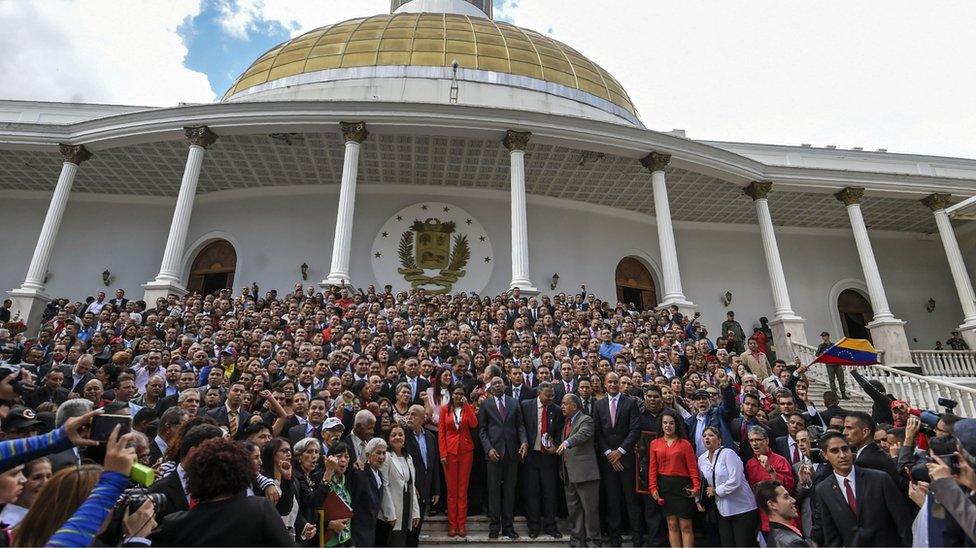
The constituent assembly is made up of 545 members
A month ago, elections for a constituent assembly were held in Venezuela. The assembly was controversial from the start, with opposition activists denouncing it as unconstitutional while its supporters argued it would bring peace to the polarised South American nation. BBC News takes a closer look at what it has and has not achieved so far.

What did the constituent assembly set out to do?

Those who backed the constituent assembly argued that it would create a national dialogue
The decree [in Spanish], external convening the constituent assembly listed a number of objectives, including:
Achieving peace through a national dialogue
"Perfecting" Venezuela's economic model to fully meet the needs of the people
Safeguard and expand social programmes introduced by late President Hugo Chávez
Expand the justice system to eradicate impunity

Why was there so much opposition to it?
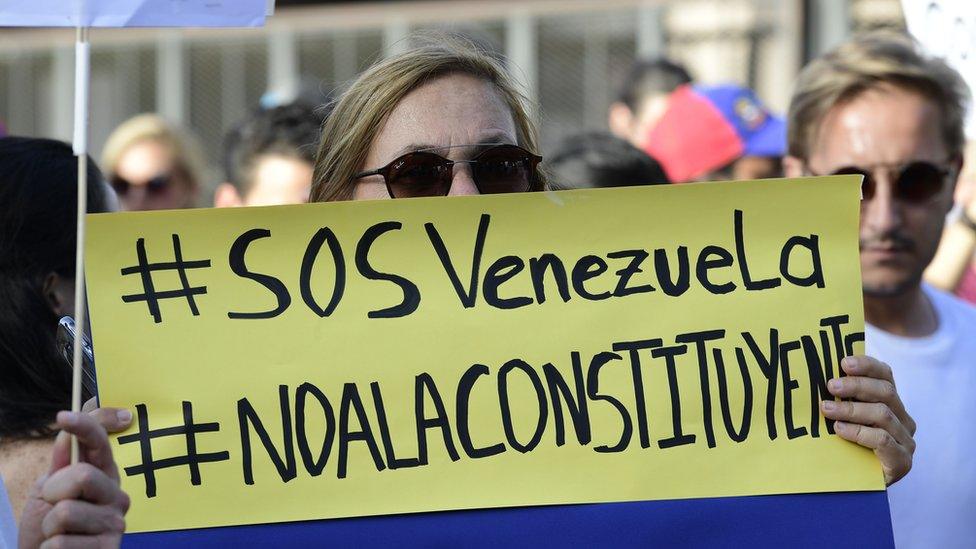
Those who oppose it say it is a way for President Maduro to cement his power
The announcement by President Nicolás Maduro that he would convene a constituent assembly to draw up a new constitution came as a surprise.
Mr Maduro had always praised the 1999 constitution, which was drafted and passed when his mentor, President Hugo Chávez, was in office.
One of the main criticisms was that President Maduro did not consult the Venezuelan people in a referendum before convening the assembly.
Many opposition activists also alleged that Mr Maduro was only interested in creating the constituent assembly because it would give him more power and allow him to by-pass the opposition-controlled National Assembly.
But their main objection is that they see it as a way for President Maduro to maximise his power and cling on to it for longer.

Who makes up the constituent assembly?
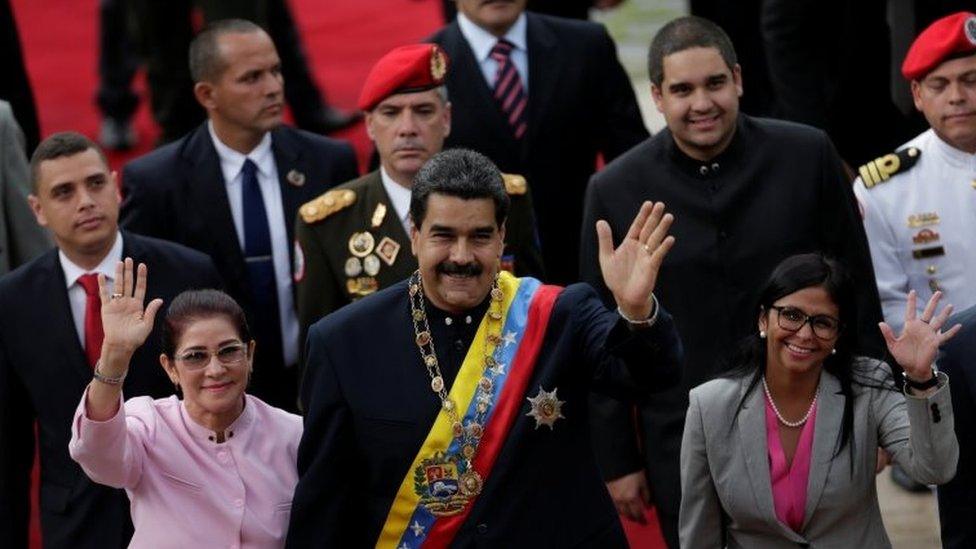
President Maduro's wife Cilia Flores (left) and his son Nicolas (second row, second from right) are members of the constituent assembly
The opposition did not field any candidates and called on its supporters to boycott the election.
The government said more than eight million people cast their votes, but the company that provided the voting system later alleged that number had been inflated by at least one million.
Among those elected on 30 July are key government figures such as former foreign minister Delcy Rodríguez, former vice-president Aristóbulo Istúriz, former prison minister Iris Varela and President Chávez's brother, Adán, as well as President Maduro's wife and his son.
The fact that all the proposals have so far been passed unanimously suggests that its 545 members are staunch government supporters.

What has the constituent assembly been doing in the past month?
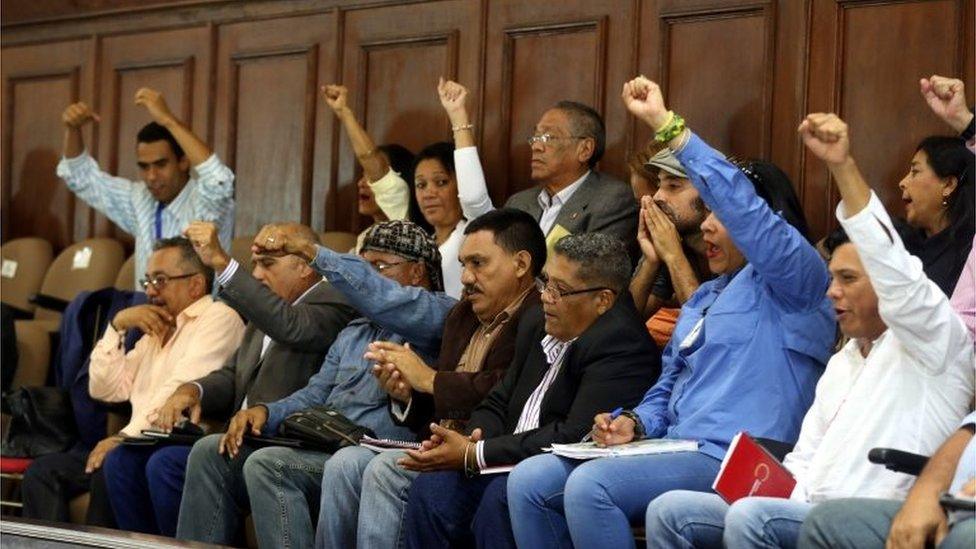
Members of the constituent assembly have voted to put opposition leaders on trial for treason
Extended the time it will meet from six months to a maximum of two years
Sacked chief prosecutor Luisa Ortega and replaced her with government loyalist Tarek William Saab
Created a "truth commission" to investigate "acts of violence" carried out at recent anti-government protests
Brought forward elections for governors scheduled for December to October
Expressed its support for President Maduro and the armed forces following US sanctions
Gave itself the power to legislate on issues including the "preservation of peace, security, sovereignty, the socio-economic and financial system"
Voted to put opposition leaders on trial for treason

What has the reaction been?
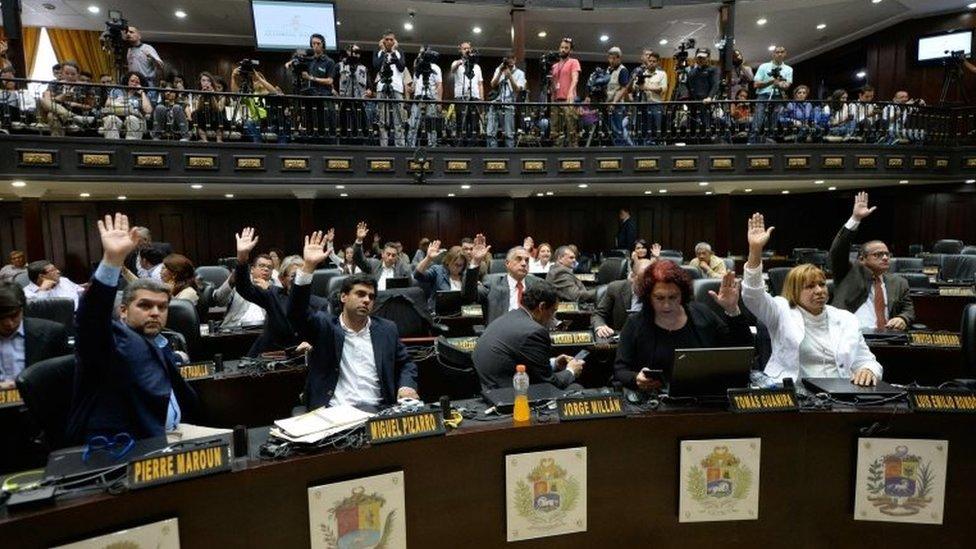
The opposition-dominated National Assembly has rejected moves by the constituent assembly to usurp its powers
Opposition lawmakers say their fears that the constituent assembly would bypass the legislative body, the National Assembly, have been vindicated.
Not only is the constituent assembly meeting in the same room as the National Assembly, it has also stated that its powers outweigh those of any other body or individual, including those of President Maduro.
The National Assembly has refused to subordinate itself to the constituent assembly, meaning that there are now two bodies passing legislation.
International reaction has been largely critical, with French President Emmanuel Macron accusing Mr Maduro of creating a "dictatorship".
The EU foreign policy chief, the US, Pope Francis, Spain, Argentina, Brazil, Chile, Colombia, Costa Rica, Mexico, Panama and Peru have denounced the constituent assembly as unconstitutional and said they will not recognise it.
Among the countries backing the constituent assembly are Venezuela's Latin American left-wing allies Bolivia, Nicaragua and Cuba, and further afield, China and Russia.

Has the constituent assembly achieved peace?
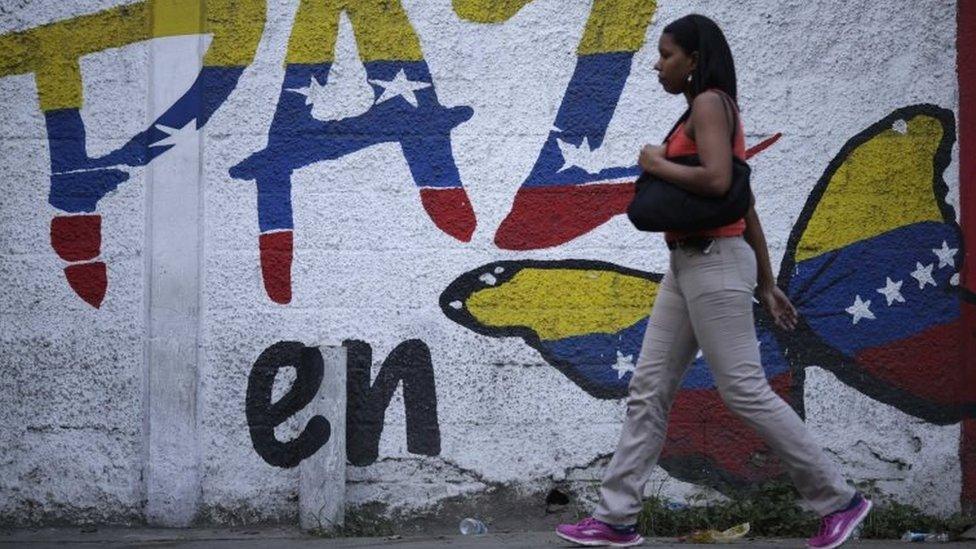
Street protests have become less frequent
President Maduro convened the constituent assembly amid daily anti-government protests with the stated aim of fostering dialogue with the opposition.
However, with the assembly being made up only of government supporters that aim has not materialised.
The government does point to the fact that street protests have become much less frequent since the constituent assembly was elected, which they say is down to the pacifying influence the assembly is wielding.
The opposition, on the other hand, says that repression of people critical of the government has increased in that time.
They point to the constituent assembly's latest decision to put opposition leaders who backed US sanctions on trial for treason as evidence.
If anything, the rhetoric on both sides has become more heated and the name-calling more frequent.

Has it made headway drafting a new constitution?
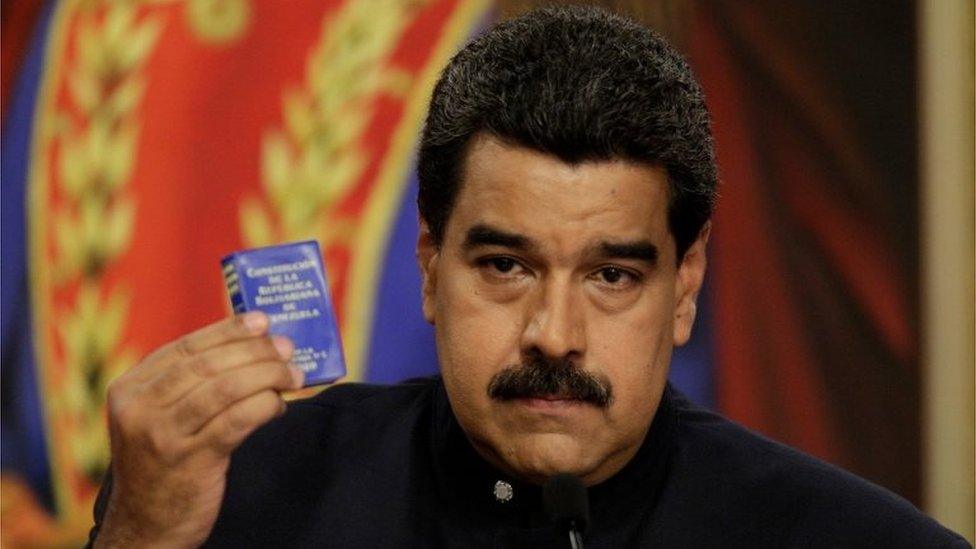
The current constitution was passed in 1999 when President Chávez was in power
One month in, the constituent assembly has fired senior officials, confirmed others in their posts, asserted its power over any other body in Venezuela, and backed the president.
It has not yet rewritten any articles in the existing constitution or drafted any new ones, the purpose for which it was originally created.

What next?
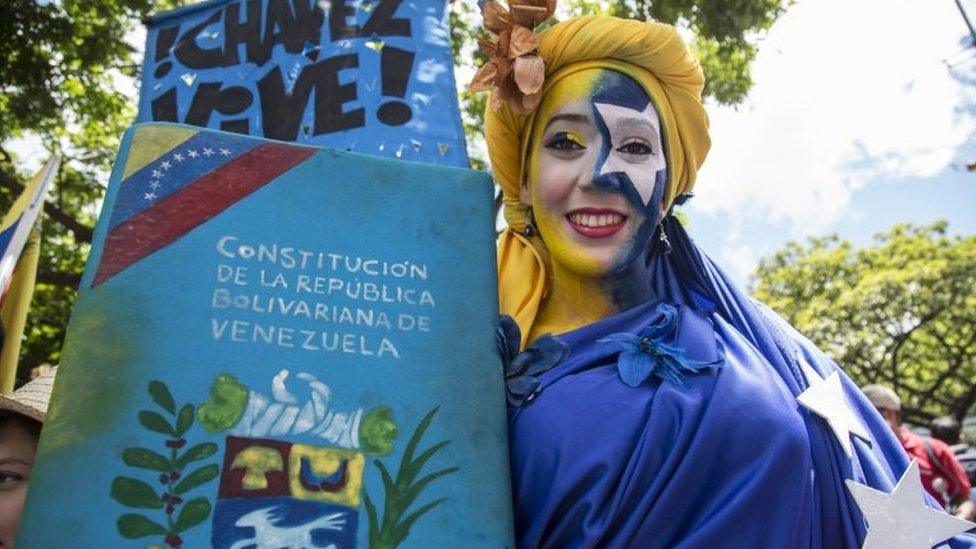
The constituent assembly has 23 months left to draw up a new constitution
The constituent assembly can continue meeting for another 23 months, having allowed itself two years to fulfil its remit.
In its first month it has passed decrees which have proven very worrying to the opposition.
Despite international condemnation, the body is passing decrees at record speed.
With the opposition divided about how to proceed, the constituent assembly look set to continue meeting and further taking over the power of the opposition-controlled National Assembly.
- Published30 August 2017
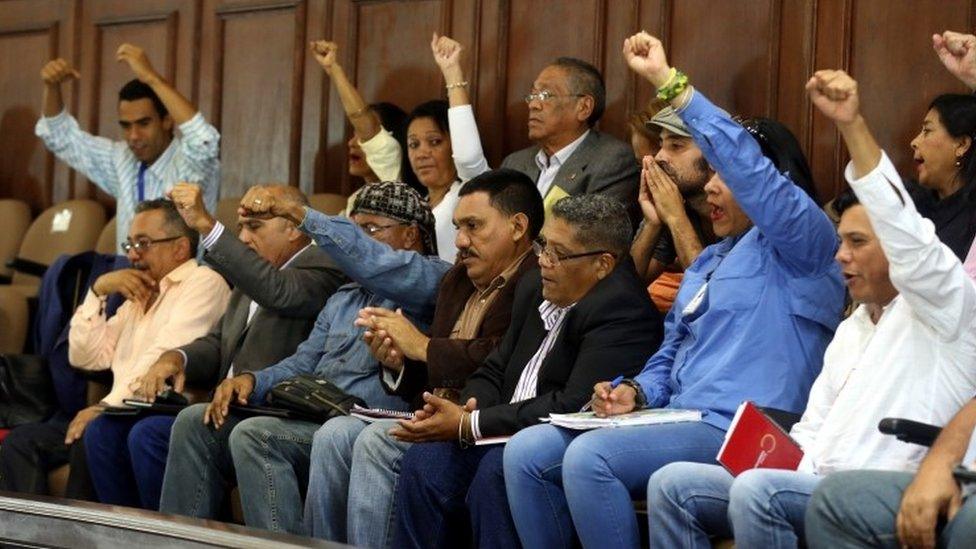
- Published19 August 2017
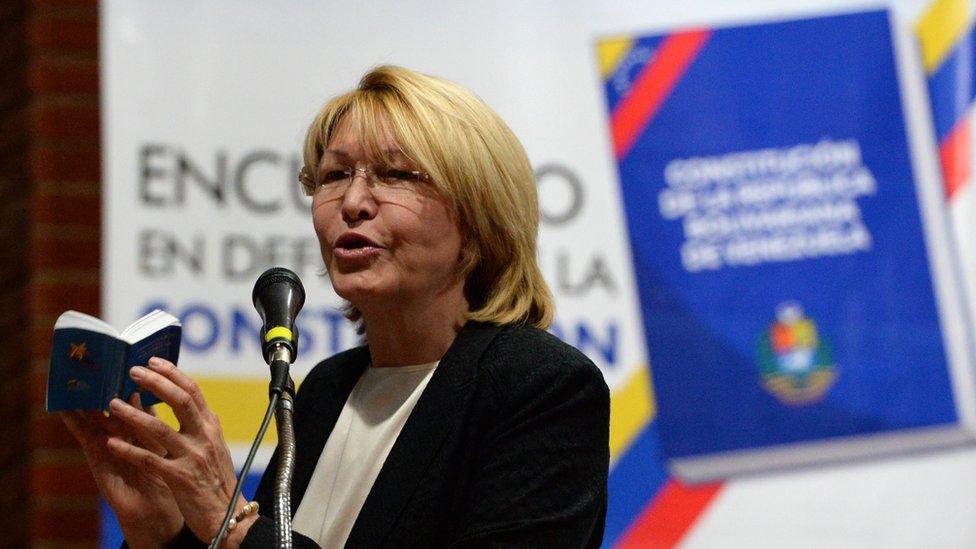
- Published7 August 2017

- Published5 August 2017
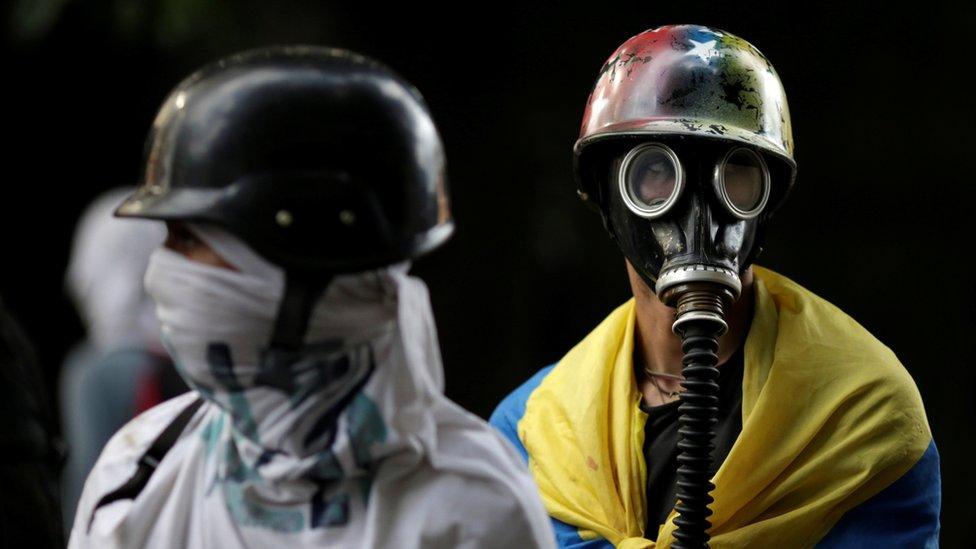
- Published2 August 2017
